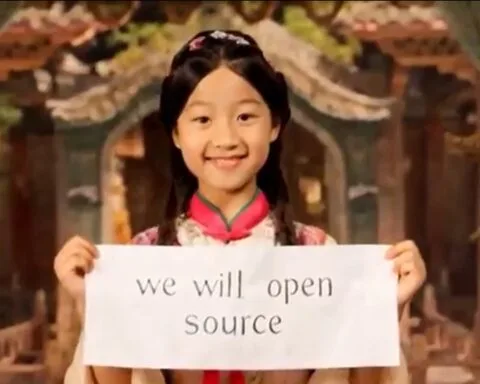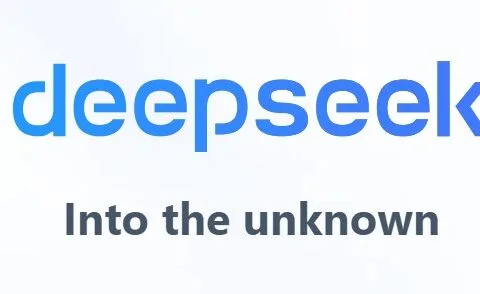Last Updated on August 29, 2024 1:29 pm by Laszlo Szabo / NowadAIs | Published on August 29, 2024 by Laszlo Szabo / NowadAIs
No Free Lunch: Baidu Blocks Google, Bing from AI Scraping – Key Notes
- Baidu blocks Google and Bing from accessing its Baike content to prevent AI data scraping.
- The move reflects a growing trend where companies restrict access to online content to protect valuable data.
- Other companies like Reddit and Microsoft are also tightening control over their data for AI purposes.
- Partnerships between AI developers and content publishers are rising as the demand for high-quality datasets grows.
Baidu Blocks Google and Bing from Accessing Baike Content
Baidu has recently made significant changes to its Baike service, a platform similar to Wikipedia, to prevent Google and Microsoft Bing from scraping its content for use in AI training. This modification was noticed in the updated robots.txt file, which now blocks access to Googlebot and Bingbot crawlers.
The Role of Robots.txt in Blocking Search Engines
The previous version of the robots.txt file, as archived on Wayback Machine, allowed these search engines to index the central repository of Baidu Baike, which contains over 30 million entries, with some subdomains being restricted. This change comes amid a rising demand for large datasets needed for AI training and applications.
A Wider Trend of Content Protection Online
Baidu’s move is not an isolated case. Other companies have also taken steps to protect their online content. For example, Reddit has blocked all search engines except Google, which has a financial agreement for data access. Similarly, Microsoft is reportedly considering limiting access to internet search data for competing search engines that use it for chatbots and generative AI services.
Wikipedia Remains Open While Baidu Tightens Its Grip
Interestingly, the Chinese version of Wikipedia, with its 1.43 million entries, remains accessible to search engine crawlers. Meanwhile, a survey indicates that Baidu Baike entries still appear on search engines, possibly due to the use of older cached content.
Partnerships for Premium Data Access
This move by Baidu reflects a broader trend where AI developers are increasingly partnering with content publishers to secure high-quality content. OpenAI, for example, has partnered with Time magazine to access its entire archive dating back over a century. A similar agreement was made with the Financial Times in April.
The Growing Value of Data in the AI Era
Baidu’s decision to restrict access to Baike’s content underscores the growing value of data in the AI era. As companies invest heavily in AI development, the importance of large, curated datasets has surged. This has led to a shift in how online platforms manage data access, with many opting to restrict or monetize their content.
Future Implications for Data-Sharing Policies
As the AI industry continues to grow, more companies are likely to reconsider their data-sharing policies. This trend could lead to further changes in how information is indexed and accessed on the internet, fundamentally altering the landscape of online content availability.
Descriptions
- Baidu Baike: A Chinese online encyclopedia similar to Wikipedia. It contains over 30 million entries and is now restricted from access by Google’s and Bing’s search bots.
- robots.txt file: A standard file used by websites to instruct search engine crawlers which pages they can or cannot index. Baidu updated this file to block Google and Bing.
- Scraping: The process of extracting data from websites. In the context of AI, this data can be used for training models to improve their performance.
- Cached Content: Information stored temporarily by a browser or search engine. Even if a website restricts access, cached versions of the content may still appear in search results.
- Partnerships for Data Access: Agreements between AI companies and content publishers to provide access to exclusive datasets, often involving financial transactions or other benefits.
Frequently Asked Questions
- Why did Baidu block Google from accessing its Baike content?
Baidu blocked Google to prevent its Baike content from being scraped for AI training purposes. The company aims to protect its valuable data from being used by competitors. - How does Baidu’s robots.txt file block Google and Bing?
Baidu updated its robots.txt file to specifically disallow Googlebot and Bingbot from indexing its content. This standard file instructs search engine crawlers which parts of a website they cannot access. - Are other companies also restricting data access like Baidu?
Yes, other companies, like Reddit and Microsoft, are also restricting or monetizing their data to control how it is used, particularly for AI applications such as chatbots. - Does Baidu’s move affect the Chinese version of Wikipedia?
No, the Chinese version of Wikipedia remains accessible to search engine crawlers. Baidu’s restrictions are specific to its own platform, Baidu Baike. - Why is there a rising trend of partnerships for premium data access?
As AI developers require large, high-quality datasets for training, they are increasingly partnering with content publishers. These agreements allow AI companies to access exclusive data not available through regular web scraping.









